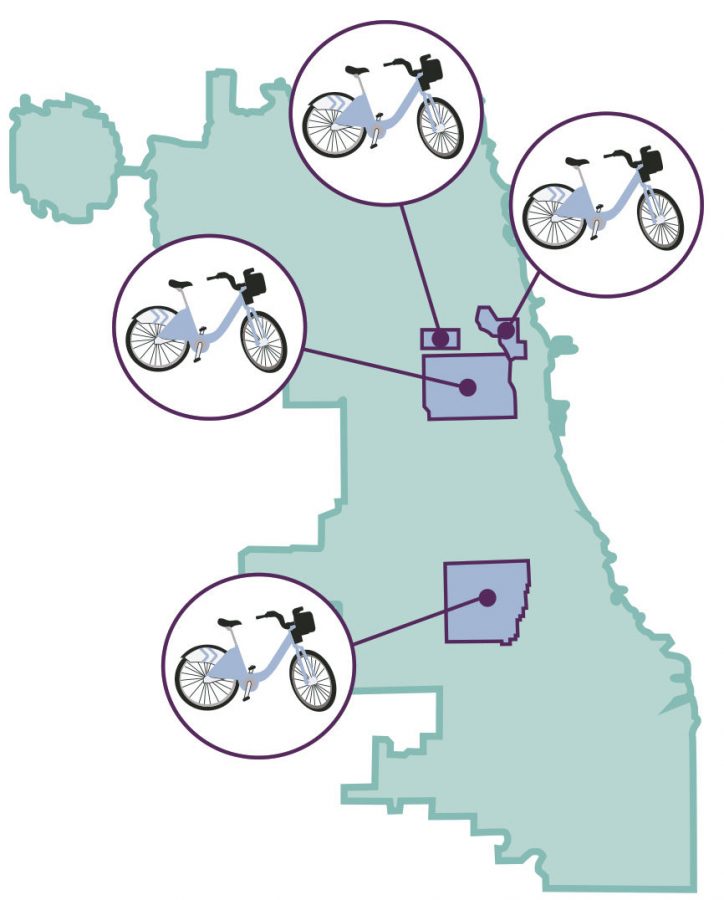Divvy expands rides with 36 new stations
Divvy expands rides with 36 new stations
September 10, 2018
Divvy expands rides with 36 new stations access throughout the city by installing 36 new bike stations in River North, Englewood, Ukrainian Village and the Near West Side neighborhoods.
The first station was installed at Malcolm X College, 1900 W. Jackson St., Aug. 28. The new stations coming in the next few months brings the total number of rental kiosks in Chicago and Evanston to more than 600.
Julia Gerasimenko, advocacy manager at the Active Transportation Alliance, said they would love to see less car trips taken overall to improve traffic and the environment.
“We hope that the advent of more Divvy stations will lead to that,” Gerasimenko said.
New stations will expand the opportunity for students in the area who use Divvy bikes to commute to class, Gerasimenko said.
Sophomore advertising major Edgar Reynaga said riding a Divvy bike is convenient, but if they were made it more accessible, students would be more into it.
Divvy gives access to bikes for students who can’t get bike storage within their residency, junior acting major Olivia Canaday said.
“It is good for your body and for the environment,” Canaday said. “[More people on bikes] means less people on other forms of transportation and less traffic.”
To create these stations, Divvy leaders and officials from theChicagoDepartmentof Transportation announced during an Aug. 28 press conference that they received funding through the federal Congestion Mitigation and Air Quality program. The company plans to hold events at these stations that will be announced on social media channels, according to an Aug. 28 Divvy press release.
Divvy outreach leaders will attend events to answer questions about how to use the bike share system and will hand out passes for free trial rides.
“Everybody should be partaking in this service,” Gerasimenko said. “If they are having these events, that’d be a great way to bring more attention and encourage people to get out and ride.”
To improve the experience, Divvy is increasing ride time from 30 to 45 minutes. They are also launching an app, according to the press release.
Successful bike sharing is dependent on quality street infrastructure, which makes it easier for people to get around on bikes, Gerasimenko said.
In addition to quality infrastructure, successful bike sharing requires dedicated space for bike riders on the streets surrounding Divvy station locations, Gerasimenko said.
“[It’s] a more active and beneficial way to get around [the city] for everyone,” Gerasimenko said.
Included in new features and services designed to improve the experience for Divvy riders this year, is the use of bike trains to transport more bikes without carbon emissions, according to the press release.
“There’s nothing like the joy of riding a bike,” Gerasimenko said. “[It] boosts happiness, and it’s a way to decrease street congestion.”








